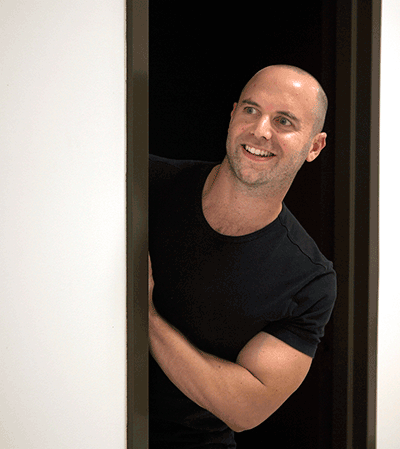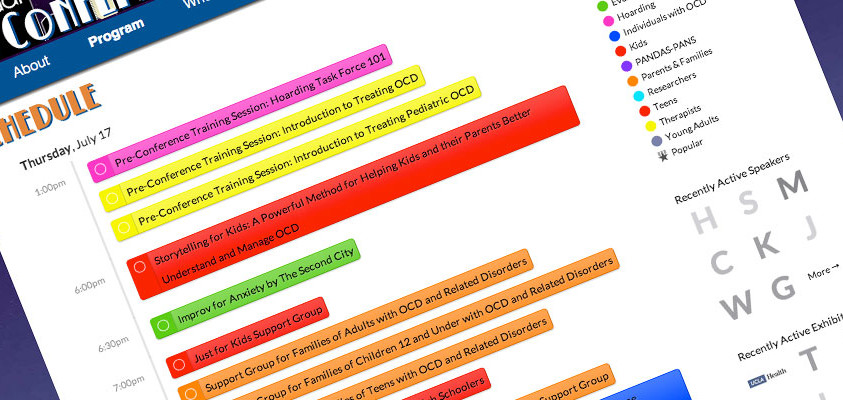[1] In today’s blog, IOCDF executive director, Jeff Szymanski, PhD, introduces the Plenary Speaker at this year’s Annual OCD Conference. The Plenary is a talk with an invited speaker, which serves as a counterpart to [2] Saturday morning’s Keynote Address specifically for the Professional Community at the OCD Conference. [3] While intended for professionals, many attendees may also find the topic of the plenary of interest.
When I mentor students or consult with other scientists or organizations, I ask them a single question to determine whether they are doing something important: “If everything worked out exactly as expected, what would the field learn?” If its hard to answer that question, its time for a period of reflection. Stop the busy work and start thinking carefully about what you are doing and why. Show your stuff in a way that can be understood by teenagers. Think like a human (not an academic professor in a tweed suit with elbow pads and embroidered handkerchiefs). Be an exceptional presenter. How? Concrete. Sticky. Stories. – Todd Kashdan, PsychologyToday
 We are very excited to announce that this year’s Plenary Speaker will be Todd Kashdan, PhD. Dr. Kashdan is a man who practices what he preaches: When I first saw Todd give a talk four years ago in Reno, NV, he ensured that what he was teaching had both impact and utility. And what struck me about Todd, in his approach and his research, is that he is the kind of clinical researcher that has something to teach us all. Whether about curiosity (what a great concept to integrate into your clinical work with OCD and related disorder clients!) or about how to live a full and meaningful life in an uncertain and unpredictable world.
We are very excited to announce that this year’s Plenary Speaker will be Todd Kashdan, PhD. Dr. Kashdan is a man who practices what he preaches: When I first saw Todd give a talk four years ago in Reno, NV, he ensured that what he was teaching had both impact and utility. And what struck me about Todd, in his approach and his research, is that he is the kind of clinical researcher that has something to teach us all. Whether about curiosity (what a great concept to integrate into your clinical work with OCD and related disorder clients!) or about how to live a full and meaningful life in an uncertain and unpredictable world.
These are some of the many reasons the IOCDF invited Dr. Kashdan to present the Professional Plenary at this year’s Annual OCD Conference. In The Untold Story About Negative Emotions: Insights Into a Transdiagnostic Process, Dr. Kashdan will review research in clinical, social, and health psychology that underscores the value of putting feelings into words. The ability to precisely describe and differentiate emotions has been recently shown to alter the association between negative emotions and emotion regulation difficulties as varied as binge drinking, aggression, brain response to rejection, self-injurious behavior, and the severity of anxiety and depressive disorders. These findings shed light on how negative emotions and stressful experiences can be transformed by how people label and distinguish what they are feeling. Implications for the study of emotions, emotion regulation and treatment will be discussed.
Dr. Kashdan is an Associate Professor of Psychology at George Mason University, where he conducts research on anxiety, positive emotions, purpose in life, mindfulness, gratitude, how personal strengths operate in everyday life, social relationships, self-regulation, and how to foster and sustain happiness and meaning in life. He wrote his first book for a general audience, Curious? Discover the Missing Ingredient to a Fulfilling Life(2009). His second book, Designing Positive Psychology (2011), provides cutting-edge science on how to achieve well-being in an uncertain, unpredictable world. Dr. Kashdan has published over 100 articles in peer-reviewed journals and given over 200 presentations at national and international conferences.
For more on Todd Kashdan visit www.ToddKashdan.com and you can watch his Ted Talk here:


Leave a Reply